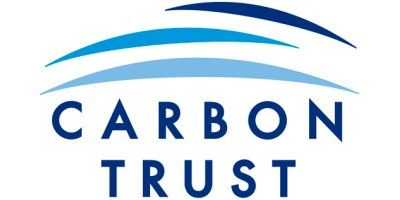

- Home
- Companies
- Carbon Trust
- News
- Carbon Trust: How businesses can save ...
Carbon Trust: How businesses can save money from thin air
UK businesses could save £110m from efficient use of compressed air
UK businesses could save up to £110m a year by taking simple low and no cost actions to improve their compressed air systems and processes, according to new guidance published today by the Carbon Trust.
Contrary to perception, compressed air is not a free or low cost resource and accounts for around 10% of UK industry’s electricity consumption - equivalent to the annual output of nearly 1.5 power stations and over 5 million tonnes of CO2 emitted to the atmosphere.
The Carbon Trust’s new guide provides practical advice on choosing an air compressor, maintenance, leak prevention and using compressed air appropriately. By following these simple measures, businesses across a range of sectors can make significant cuts to their electricity spend on compressed air. In the industrial sector for example, a typical business* could save £1,500 a year by improving their compressed air processes and systems.
Richard Rugg, Director, Carbon Trust Programmes, said:
“There is a misconception that compressed air is a free or low cost resource, when – in fact – the opposite is true. Just a single 3mm hole in a compressed air system creates a leak, which can cost a business an additional £1,000 a year in electricity costs.
This is not a niche problem. Compressed air is being used across industries as diverse as aircraft manufacturing, water treatment, electronics and engineering. Our new guide provides practical and easy to implement advice that will enable businesses to cut their electricity spend on compressed air by up to a third.”
The Compressed Air Overview guide is part of the Carbon Trust`s Expert in Energy series. The Carbon Trust is also running a free webinar on how to significantly reduce running costs and improve the efficiency of your compressed air systems at 12pm, 30 January 2012. Download the guides and sign up to secure your webinar place at www.carbontrust.co.uk/expertinenergy.
Fox Wire are an independent steel wire manufacturer based in South Yorkshire that relies on an air compressor to supply pneumatic power at its factory. However, as different projects require different amounts of air, the existing compressor wasn’t appropriate for their needs as it remained on steadily, even when it wasn’t in use.
With assistance from the Carbon Trust, Fox Wire replaced the old compressor with a new variable speed air compressor, allowing it to precisely control the power used. The new device uses 30% less electricity – equivalent to annual savings of over £6,500, a payback period of less than two years, and CO2 savings of 50.5 tonnes.
Top tips from the Compressed Air Overview Guide:
- Test for and fix leaks. Reducing air leaks is the single most important energy saving measure for most businesses.
Have an ongoing test and repair kit for leaks – remember they can reappear. A 3mm hole could cost over £1,000/year in wasted energy. - Write a usage policy. There are often cheaper alternatives to using compressed air for certain jobs. Educate your staff not to use it.
- Switch off. Remember to turn off compressed air-consuming equipment when it is not required.
- Reduce the pressure. Compressed air is often generated at the compressor’s maximum pressure (often 7 bar, 100 psi). Reducing pressure by 10% can lead to 5% savings in energy. Make small, incremental reductions, checking that operations are not affected.
- Check air quality and pressure dew point. If only some processes need the air to be treated to a highly-specified level, consider treating the bulk of the air to the minimum acceptable level, and then treating a smaller portion separately using a point-of-use system.
About the Carbon Trust
The Carbon Trust is a not-for-profit company with the mission to accelerate the move to a low carbon economy, providing specialist support to business and the public sector to help cut carbon emissions, save energy and commercialise low carbon technologies. By stimulating low carbon action we contribute to key UK goals of lower carbon emissions, the development of low carbon businesses, increased energy security and associated jobs.
We help to cut carbon emissions now by
- Providing specialist advice and finance to help organisations cut carbon
- Setting standards for carbon reduction
We reduce potential future carbon emissions by
- Opening markets for low carbon technologies
- Leading industry collaborations to commercialise technologies
- Investing in early stage low carbon companies
About Carbon Trust Implementation Services
Carbon Trust Implementation services is a wholly owned commercial subsidiary of the Carbon Trust Group. Its aim is to close the gap between identification and implementation of energy savings opportunities by addressing key client barriers, such as lack of technical, market and procurement expertise, resources and finance to procure energy efficient equipment.
- It unlocks energy saving opportunities for customers by delivering Energy Efficiency Financing with its partner Siemens Financial Services - offering flexible financing options to all types of organisations seeking to make their operations more efficient and lower their energy costs.
- It also addresses key, non-financial barriers that customers face in implementing energy efficiency and renewable energy equipment. It connects organisations with proposed energy efficiency capital projects to accredited equipment suppliers. It makes it easy for businesses to implement the best solution for energy efficient and renewable energy equipment, to enable them to reduce energy costs, carbon emissions and enhance competitiveness.
- For more information, please visit www.carbontrust.co.uk/implementation or call 0845 6008683
